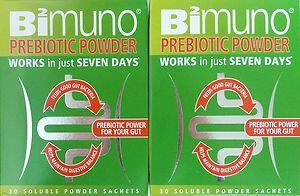“Consumers in the UK should be advised that this new report regarding health claims on food supplements is inaccurate as it infers that manufacturers are misleading their customers – which is simply not true,” said Graham Keen, executive director of the UK Health Food Manufacturers’ Association (HFMA).
“Just because a certain ingredient does not have an EFSA-approved claim, does not mean that it doesn’t have a beneficial effect.”
“The report ignores the significant efforts by UK manufacturers’ to comply with the regulation as well as still provide factual information about what their products do and how they work.”
Con?
The story was picked up in the UK press and ran on today’s front page of the Daily Mail with the headline: 'Exposed: Health Supplement Con'.
Which? said products were making unsubstantiated or confusing claims that were outside the approved 248-strong list under the European Union nutrition and health claims regulation (NHCR).
It said that whilst, “…most companies have removed rejected health claims for supplements that have failed to gain EU approval, we’ve found a small number are still using ambiguous product packaging to promote their products.”

Bioglan Probiotic capsules, Bimuno Prebiotic powder and Seven Seas Cardiomax were singled out as being the worst claim abusers.
Bioglan and Seven Seas said they were changing marketing materials and packaging on those products but pointed out that other products contained approved nutrients that permitted claims.
Bimuno said it is resubmitting its prebiotic claims for reassessment after twice being rejected by the European Food Safety Authority (EFSA).
Claim halt
Another UK food supplements group, Consumers for Health Choice (CHC), reiterated the HFMA point that the NHCR is, “disproportionate and overly burdensome”, and said it was going to increase efforts to convey supplement-related health information.
“CHC will be stepping up its efforts to provide accurate information to consumers about the benefits of vitamin, mineral, botanical and other food supplements so that they can continue to make informed choices about the products that they choose and the benefits that they can reasonably expect to achieve by doing so,” said CHC director of strategy, Chris Whitehouse.
Keen added: “The sad fact is that the regulation is putting a halt on many hundreds of proportionate and substantiated claims on products that have been well understood and accepted by the average consumer for decades – such as ‘dietary fibre helps maintain a healthy digestive system’ and ‘glucosamine helps maintain healthy joints’.”
“As a result, the legislation is, unfortunately, counterproductive as it denies consumers the very information that they need in order to make informed choices about how and why these products might be used, and what reasonable expectations they might have for their effectiveness.”
